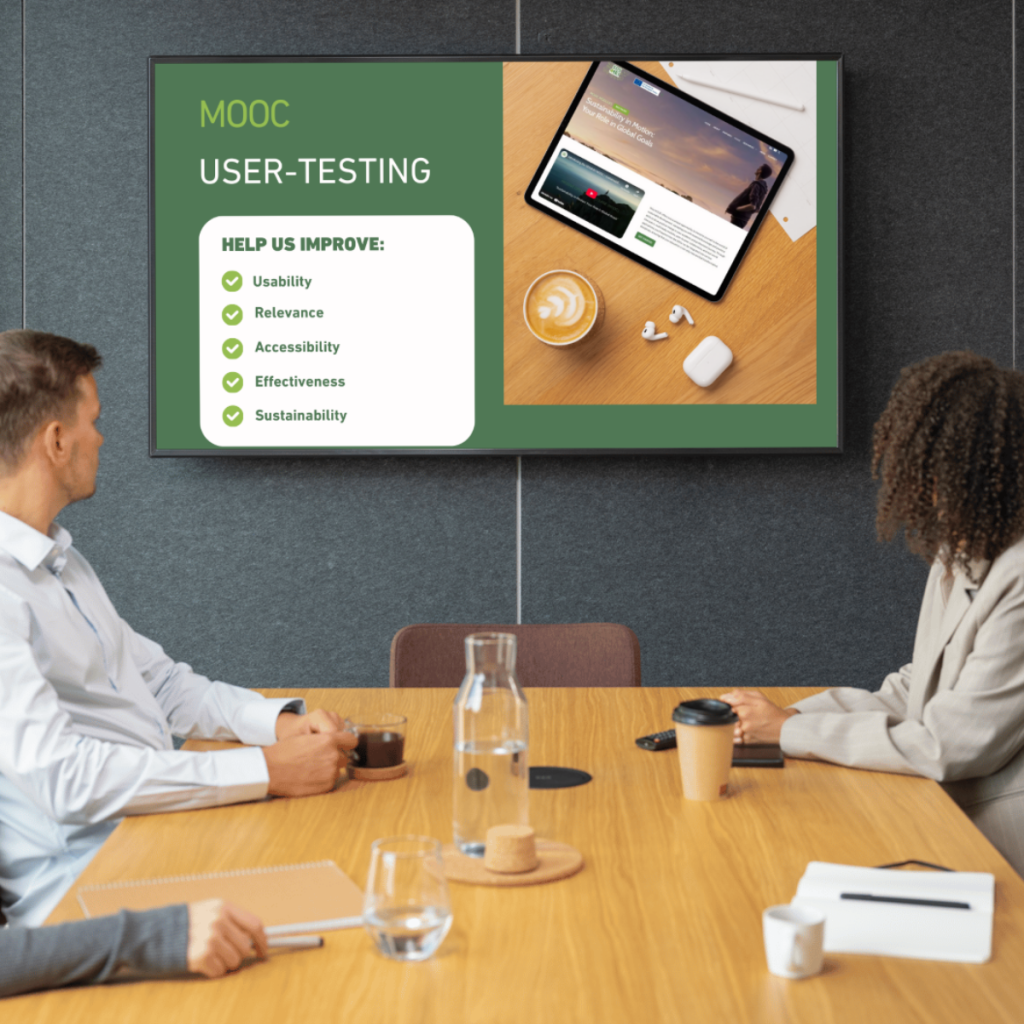
In a world where sustainability education is more urgent than ever, the SDS4HEI project has taken a major leap forward with the development of its Massive Open Online Course (MOOC), “Sustainability in Motion: Your Role in Global Goals.”
But how do we ensure such a course truly meets the needs of learners?
To ensure the course responds to the real needs of educators and students, the SDS4HEI consortium conducted an extensive user-testing phase. This involved:
The user-testing evaluated the MOOC’s objectives, practical application, and key elements such as usability, accessibility, pedagogical effectiveness, and long-term relevance. Participants were asked to assess how well the course supports learners to:
✅ Engage in peer-to-peer communication
✅ Access and interact with the content
✅ Improve their SDG-related knowledge and competencies
✅ Enhance pedagogical strategies for teaching SDGs
✅ Feel inspired and prepared to apply the SDGs in everyday work and life
The MOOC received overwhelmingly positive feedback from both university staff and students, confirming its value, relevance, and accessibility as a learning tool for sustainable development education.
Here are the highlights:
Testimonials underscored the MOOC’s rich content, clear structure, and learner-friendly design. Users appreciated:
One university staff member noted:
“It provides free, valuable materials for university staff, who might otherwise lack the time to prepare such resources without initiatives like this.”
Another student shared:
“It helped me start thinking about how my work directly impacts certain SDGs and how I can be a catalyst for positive change.”
And another emphasized:
“The course offers accessible education on global challenges while fostering essential competencies for the SDGs.”
The course was consistently described as a bridge between theory and practice, a tool for both personal development and institutional progress.
The results clearly affirm the MOOC’s strategic value in higher education. While a few areas for enhancement were noted—such as content depth, technical refinements, and increased interactivity—the user-testing process shaped the final version into a truly user-centered, impactful, and inclusive resource.
Going forward, the MOOC will remain in continuous development, integrating user feedback and technical improvements to better serve learners.
The MOOC is now available for university staff, students, educators, and institutions eager to embed sustainability into teaching, learning, and everyday practice.
🔗 Learn more and access the MOOC: https://sds4hei.eu/courses/sustainability-in-motionyour-role-in-global-goals/
📥 Download the full User-Testing Report PDF
📢 Follow project updates on SDS4HEI Website, LinkedIn, YouTube and X.